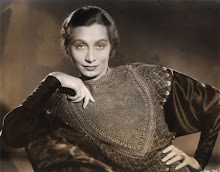 Bellinger
Bellinger Sir Robert Bellinger’s son was born in 1948, the only fruit of an already tired tree of a marriage. A marriage that was not meant to be. The child had a proper name, also Robert, yet from the boy’s infancy, Sir Robert always called him “Lochnevis.” The child’s mother thought this unusual but unworthy of comment.
She had met Sir Robert in London the year he had come back from the Isles after the affair with the girl from the Midlands. It was a tale he told in the same manner, and with the same disregard, as that of some small merger gone wrong at CCI.
Yet even now, Sir Robert thought of the girl on occasion -- usually on days when the wind was high or when he heard the swirl of pipers at some ceremonial event. He had met and admired the girl. Mutual benefits were obvious and, finally, arrangements were made. He thought an island setting for a marriage might appeal to, and impress her.
But Sir Robert Bellinger had not planned on the haze of wartime, when schedules were rarely met, and when mostly everyone seemed to act out of station. Imagine a storm scuttling a marriage. Imagine a missed boat changing the course of a young girl’s life. Imagine three pipers playing tunes they were not meant to play.
During those wartime days, during their courtship, Sir Robert was accustomed to tell the girl “do as you like my dear.” And finally she had done so. She had done so. She had off and married a naval officer, a would be Laird of something or other: some insignificant rocky Lairdship by the sea.
So Sir Robert Bellinger lingered briefly on an island for which he had little interest -- even the fishing was inadequate. He returned to his natural habitat and resumed his work. In due time a more suitable marriage was arranged, built as he would build some new property in his business. The structure was suitable. The materials were adequate to the purpose. His wife was excellent at Bridge, excelled at overseeing the household staff, and preferred her holidays in sunny Mediterranean regions.
But then again, there were those occasions, when the wind was high, or when he was at a ceremonial event, that the slightest doubt entered his mind. He realized for a moment that he had forgotten where he had been. And he wondered if, just wondered -- if he knew where he was going.







+1931++25+(2).jpg)
+1931++Mirror.jpg)
.jpg)
.bmp)
.jpg)



+vladmir+larger+(2).jpg)

